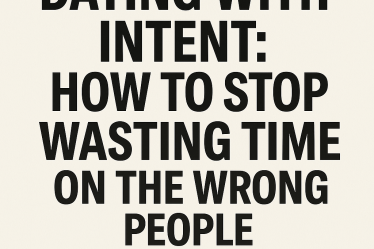
Communication is the backbone of any strong relationship—whether romantic, platonic, or professional. Yet, even minor communication mistakes can lead to misunderstandings, resentment, and emotional distance.
If you’ve ever found yourself in an argument that seemed to come out of nowhere or felt unheard in a conversation, you may be making one of these common mistakes. The good news? Most communication problems can be fixed with awareness and effort.
In this article, we’ll explore five major communication mistakes that can wreck relationships and provide practical tips to avoid them.
1. Not Listening Actively
Keywords: active listening, poor communication, relationship problems
One of the biggest mistakes people make in communication is not truly listening. Many people listen just to respond, rather than to understand.
Signs You’re Not Listening Actively:
- Interrupting or finishing the other person’s sentences.
- Thinking about your response instead of focusing on what they’re saying.
- Getting distracted by your phone or other thoughts.
How to Fix It:
- Maintain eye contact and show you’re engaged.
- Paraphrase what the other person says to confirm understanding.
- Ask open-ended questions to encourage deeper conversation.
Why It Matters: Research shows that active listening fosters trust and reduces conflict in relationships.
2. Assuming Instead of Clarifying
Keywords: miscommunication, misunderstandings in relationships
Making assumptions about what someone else thinks or feels can lead to unnecessary tension. Instead of seeking clarification, we often jump to conclusions, which can create conflict.
Common Assumptions That Cause Problems:
- Thinking your partner “should just know” what you need.
- Assuming someone’s upset with you without asking.
- Believing the worst in a situation without checking the facts.
How to Fix It:
- Ask questions instead of making assumptions.
- Be direct about your needs rather than expecting others to guess.
- Give people the benefit of the doubt before reacting negatively.
Pro Tip: Avoid mind-reading—always seek clarification before jumping to conclusions.
3. Using Blame and Criticism Instead of “I” Statements
Keywords: blaming in relationships, healthy communication habits
Blaming and criticizing your partner can make them defensive, shutting down productive conversation. This creates a cycle where both people feel unheard and frustrated.
Examples of Blame vs. Healthy Communication:
❌ Blame: “You never listen to me!”
✅ Healthy Alternative: “I feel unheard when we don’t have open discussions.”
How to Fix It:
- Use “I” statements to express your feelings without attacking.
- Focus on behavior, not personality. Say, “I’d appreciate it if we could talk without distractions” instead of “You’re always on your phone.”
- Acknowledge your partner’s perspective to foster mutual respect.
Insight: Relationship expert John Gottman identifies criticism as one of the “Four Horsemen” that predict relationship failure. Avoid it by focusing on constructive feedback.
4. Shutting Down Instead of Addressing Issues
Keywords: stonewalling, avoiding conflict, emotional distance
Avoiding difficult conversations (also known as stonewalling) may seem like a way to keep the peace, but in reality, it creates emotional distance. When one person withdraws, it leaves the other feeling ignored and unimportant.
Signs of Stonewalling:
- Giving the silent treatment instead of discussing issues.
- Withdrawing or shutting down emotionally.
- Refusing to engage in a conversation.
How to Fix It:
- Take a break if needed, but come back to the conversation.
- Acknowledge your emotions and express them calmly.
- Practice emotional regulation techniques, like deep breathing, before responding.
Tip: If emotions are running high, agree to pause and revisit the conversation later, rather than ignoring it entirely.
5. Letting Technology Replace Real Conversations
Keywords: digital communication issues, texting vs. talking
In today’s digital world, it’s easy to rely on texting or social media to communicate. But overusing technology can create misunderstandings and weaken real-life connections.
Problems with Digital-Only Communication:
- Tone is often misinterpreted in texts.
- Lack of meaningful connection compared to face-to-face talks.
- Distractions (phones, notifications) can reduce quality time.
How to Fix It:
- Prioritize in-person or phone conversations for important discussions.
- Set boundaries for screen time to enhance real-life interactions.
- Use technology to connect, not replace deep conversations.
Supporting Data: Studies show that excessive screen time negatively affects relationship satisfaction.
Conclusion
No relationship is perfect, and communication challenges are bound to happen. The key is to recognize these mistakes and make small, intentional changes to improve how you connect with others.
Start by identifying which of these mistakes you tend to make the most. Then, focus on practicing one new communication habit at a time.
Call to Action: Which of these communication mistakes have you encountered? Share your experiences in the comments below!



